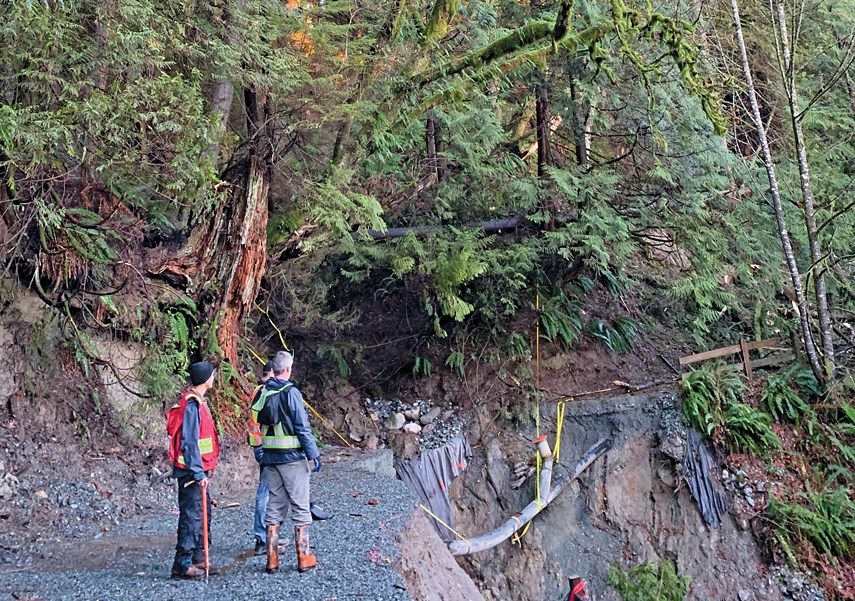District of West Vancouver spokeswoman Donna Powers said the municipality continues to get messages from residents upset that the trail has not been restored after three months but she said the entire area remains unsafe.
“This is huge. It’s just taken out the side of the mountain and there were multiple mini-slides that followed it from the slope above,” she said. “The whole slope is unstable and I don’t think we’re going to really know when it’s going to settle down until the seasonal rain stops because every time it rains, it slides again.”
Geotechnical experts say homes in the area are not at risk, but the trail has been fenced off and will stay that way for the foreseeable future, Powers said.
But, Powers added, the fence has been vandalized and people have been trespassing. That is very worrying, Powers said, given the potential for further slides and the risk it would present to rescuers if they were called in.
“I think we’ve been very lucky. This mountain showed us that it’s not stable, in a serious way, and no one got hurt. We take that message from Mother Nature really seriously,” she said.
In the meantime, the district has asked walkers to take a three-kilometre detour via Moyne Drive, Rabbit Lane, Stevens Drive, Mathers Avenue, Third Street, and a new path along the Upper Levels Highway to Keith Road.
Staff will begin preliminary work on a new trail in the next few months, pending budget approval, including slope hazard mapping of the area to determine if a safe and viable trail is even possible, a process that will take many months. Beyond that will be detailed designs, determining a budget and persuading council it should be a spending priority.
“We have every reason to believe that will be a multimillion-dollar project,” Powers said. “At this point, people should not expect that reinstatement of the trail alignment as we previously knew it will be possible, although this depends on the investigative geotechnical work to take place.”
Higher priority than the trail has been a buried sewer line, which was exposed by the first slide and very nearly taken out by trees coming down in subsequent slides.
To prevent a catastrophic break and sewage flowing into the Capilano River, utilities crews scrambled to install a temporary bypass powered by a generator. That worked, but it prompted noise complaints from North Vancouver residents who heard the generator echoing across the canyon. Thankfully, staff have since found a way to create a gravity-fed bypass and the generator has been turned off.
“They were very understanding and very patient but they were being driven crazy by the 24-7 generator noise and they were very, very pleased when we disconnected it,” Powers said.
Staff are now studying the feasibility and costing of long-term options to keep the sewage flowing but it will likely be another six months to a year before a new line is commissioned.



